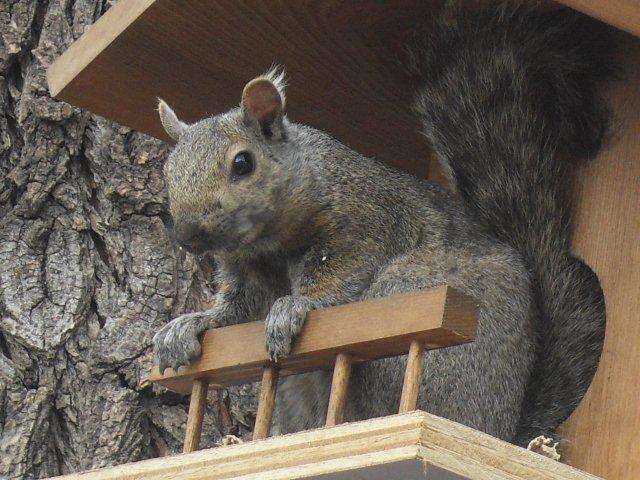Who will be recognized as the greatest contemporary English language poet in, say, the year 2030? Let's see if we can put together a composite, beginning with the language used.
 | |
| Margaret Ann Griffiths |
This homogeneity transcends time, as well. A 92 year old Torontonian talks almost exactly like a 12 year old Vancouverite.
Listen closely to the English spoken on U.S. television and, more and more, by the newer generations of Americans. Do they sound like Chicagoans? New Yorkers? Bostonians? Midwesterners? Southerners? No. Compare 12-year-olds across America to see whether, when speaking outside their family, they sound more like their grandparents or like Canadians (minus the "Eh?") such as Peter Jennings and William Shatner.
Whoever the next great poet is or, more accurately, whoever presents that poet's work will sound like Canadians and, thanks to print media domination (to say nothing of programming and scripting languages), spell like Americans. That is the de facto standard for all public communication in North America and is becoming so for the world at large.
 |
| Earl the Squirrel's Rule #50 |
Statistically, then, the next great poet rates to be Indian. There are other factors that will tilt the odds in this direction. As you know, poetry is dead in English-speaking countries. Not quite so in India, where the average person can recite whole poems--and not only English ones--composed in the last half century. This love of verse is reflected in a far more positive approach to prosody. This fascination is particularly strong regarding rhythm due to the unaccented nature of native Indian languages.
 | |
| A. E. Stallings |
When in doubt, predict the present!
Age? Writers tend to peak in their thirties or forties. That sounds about right. Tomorrow's poet needs to be old enough to respect the craft and have both life experiences and a sense of humor, but not so stereotypically old as to be self-conscious, "out of touch", death-obsessed or technophobic.
Marketing? Referring back to the original question, it isn't enough to be the best poet of an era; one needs to be recognized as such. Currently, Page poets rarely look beyond their university, let alone their borders. The Internet tends to denationalize conversations, though, so 2030 will be an entirely different world. The two keys will be popularity (something that will be determined on sites like YouTube) and geek appeal (easily earned when the competition is focused on substance to the exclusion of form).
Outside of The Poetry Society (India), awards for poetry in India are few and meager. Contests are another matter entirely. While America's Pulitzer, Canada's Governor General Award, the Queen's Gold Medal for Poetry in Britain and other anglophone countries' honors elicit little interest or participation from the public, the All India Poetry Competition involves entrants of every age and is reported closely by the media there. Because poetry is relevant to their society--something we videshi can scarcely imagine--an accomplished Indian poet begins with the greatest of all marketing advantages: a market! This fact, alone, puts them four generations ahead of anglophone countries. They enjoy a similar advantage in performance, which never disappeared from Indian society. Oh, and Indian poets, along with their supporting organizations, are years ahead of their Western counterparts in the use of technology.
One last thing: If you are a regular reader here you know that the future of poetry lies in performance contest marketing. Care to guess where this was invented?
Your feedback is appreciated!
Please take a moment to comment or ask questions below or, failing that, mark the post as "funny", "interesting", "silly" or "dull". Also, feel free to expand this conversation by linking to it on Twitter or Facebook. Please let us know if you've included us on your blogroll so that we can reciprocate.
If you would like to contact us confidentially or blog here as "Gray for a Day" please use the box below, marking your post as "Private" and including your email address; the moderator will bring your post to our attention and prevent it from appearing publicly.
We look forward to hearing from you.

No comments:
Post a Comment
Your comments and questions are welcome.